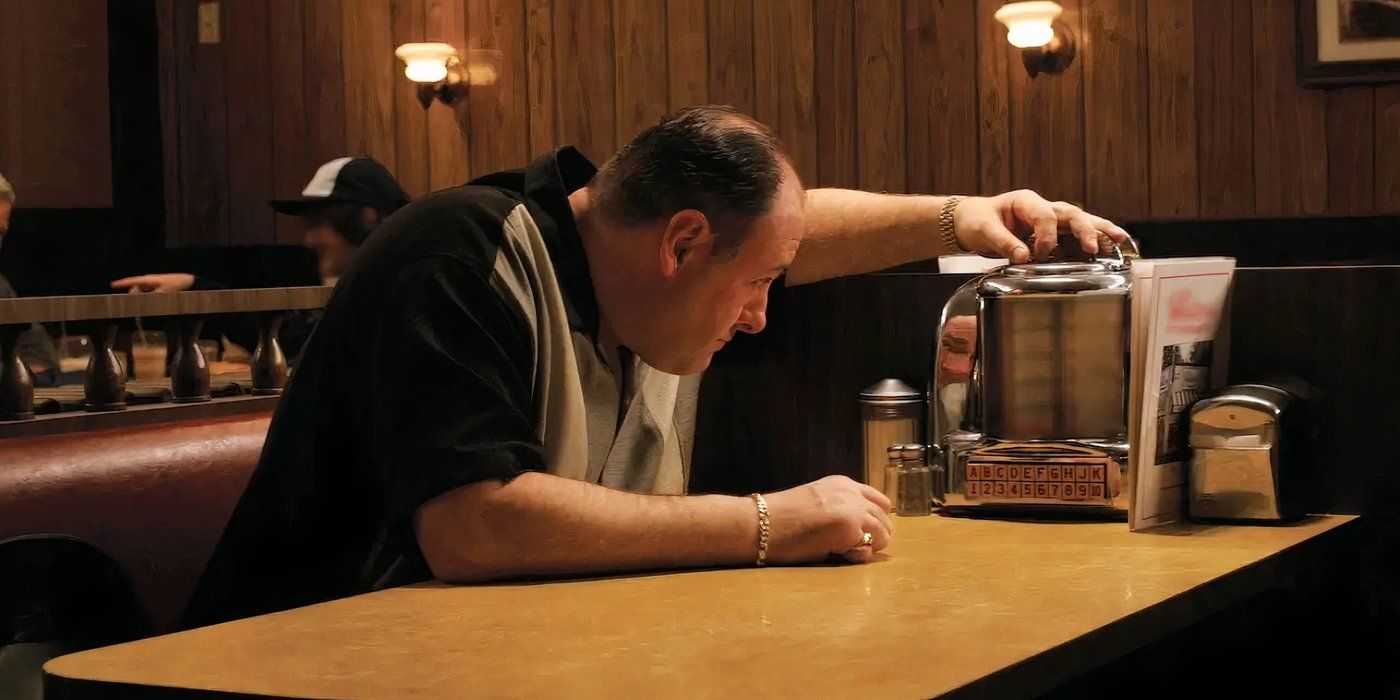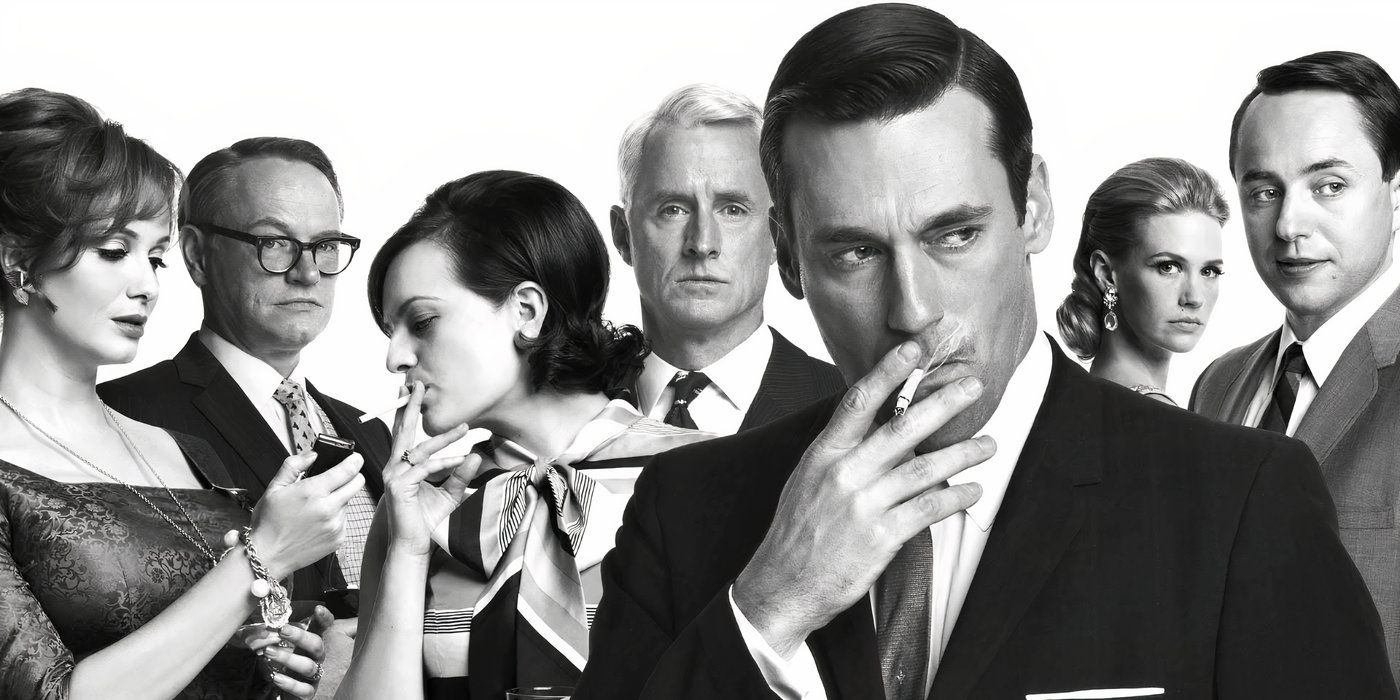In the 21st century, television has emerged as a fresh platform for some of the most captivating storytelling and top-notch entertainment on screen. With an abundance of new shows being released regularly, viewers often find themselves inundated with choices. This was not always the case; when cinematic TV was still rare and unique, shows that employed this format left a lasting impression on audiences. Today, audiences have grown accustomed to lengthy, cinematic storytelling on TV, but it was pioneering series like The Sopranos, The Wire, The Shield, among others, that helped shift the focus away from the three-camera/sound stage format that had previously dominated the medium. One early example of a show that made an impact in the world of cinematic television was AMC’s masterpiece Mad Men, which debuted the same year The Sopranos concluded.
In essence, the creation and success of “Mad Men” can be traced back to the impact of “The Sopranos.” Airing concurrently with influential cable series like “Deadwood,” “Entourage,” and “Dexter,” AMC aimed to contribute captivating narratives to television, a space already dominated by another company bringing cinematic elements to network TV. FX had paved the way for this achievement, and AMC sought to cash in on the popularity of this new wave of high-quality television production.
Following “Mad Men,” AMC premiered “Breaking Bad” a year later, and in 2010, “The Walking Dead” became their biggest hit, solidifying their status as a significant player in the world of cinematic TV. However, while “Mad Men” may still be considered AMC’s masterpiece, it often plays second fiddle to “Breaking Bad.” In terms of style and storytelling, “Mad Men” closely followed the path set by “The Sopranos,” even more so than other shows, including with its finale.
Mad Men Is the Quintessential Cinematic Melodrama of the 21st Century
It Merges Elements of Old Form and New Form Television
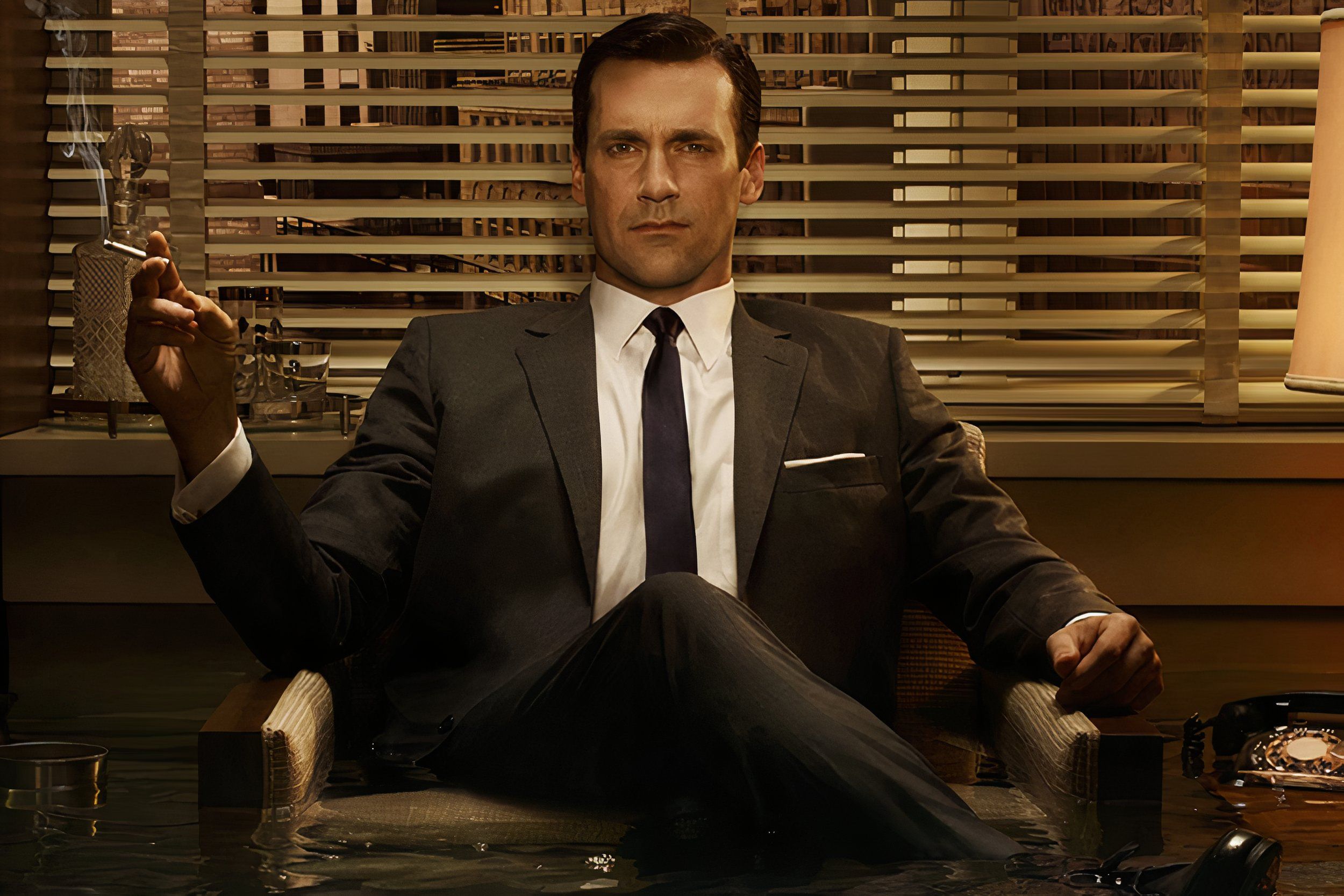
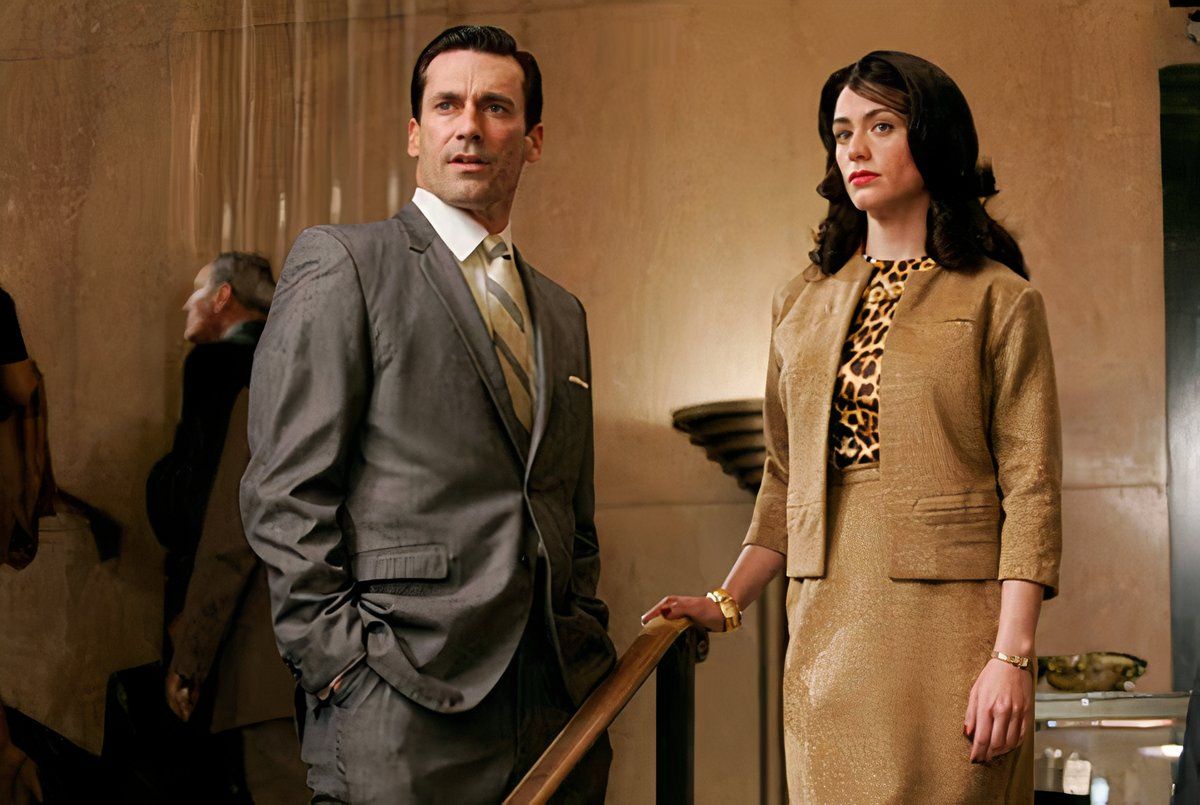
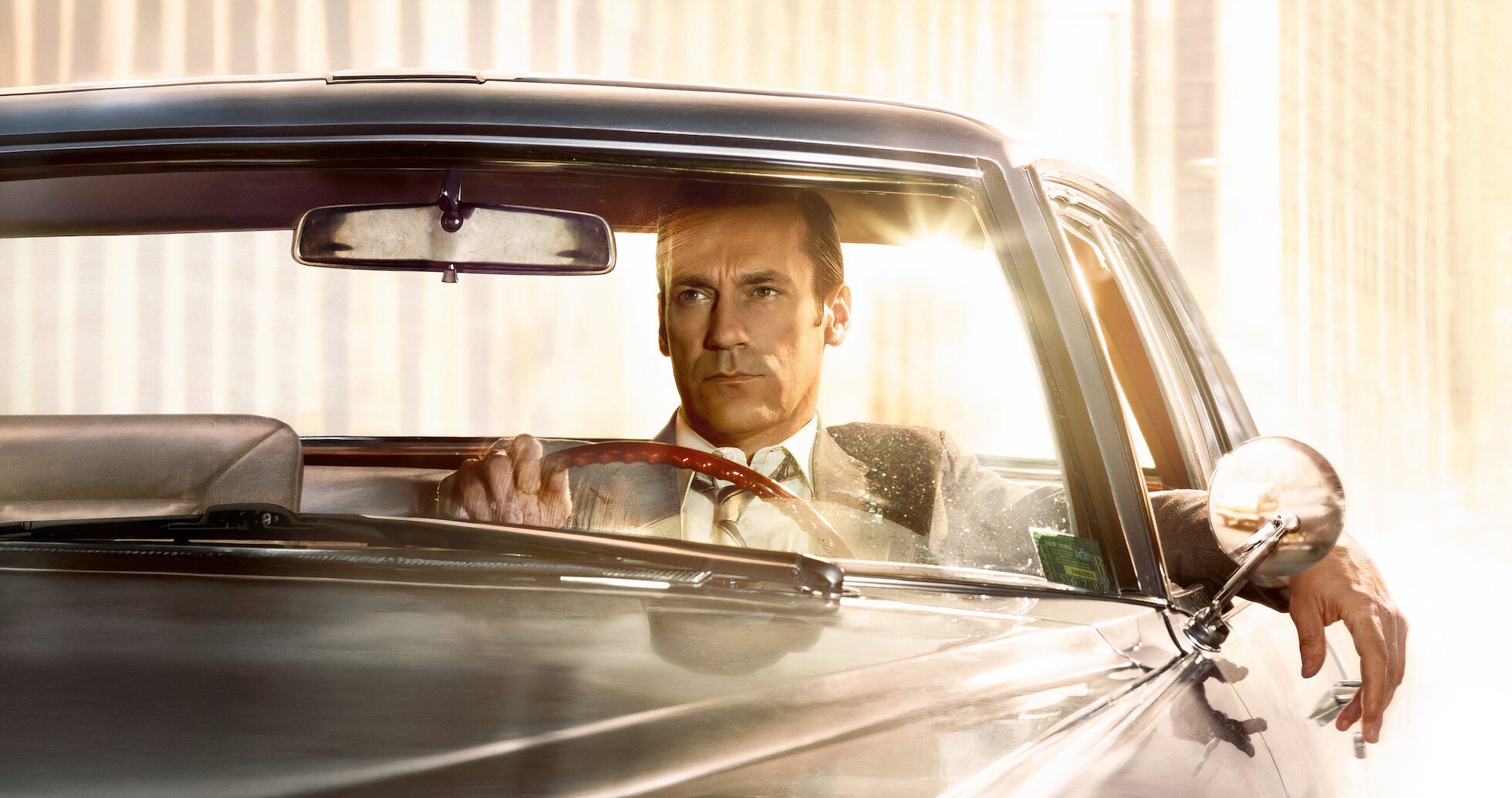
One distinctive feature of the series Mad Men lies in its portrayal of intimate personal connections and an in-depth examination of everyday life. Essentially, Mad Men shares a similarity with numerous television shows that have graced our screens for many years. It bears resemblance to prime-time dramas and even daytime soap operas in certain aspects. Interestingly, this approach was also prevalent in early TV shows, and it’s reflected in parts of The Sopranos, The Wire, The West Wing, and Breaking Bad, to name a few. This refers to a focus on mundane or familiar aspects of life that are dramatized through characters, relationships, and scenarios.
Shows like these didn’t require an additional element to captivate audiences because their main purpose was to depict the authenticity of life through storytelling. Shows such as “Mad Men” achieved this exceptionally, but on a unique level. By transforming the ordinary drama of life into a cinematic experience, “Mad Men” managed to surpass traditional network drama standards and become one of the most stylish melodramas in television history. The daily life of a character like Don Draper was engaging enough for conventional drama enthusiasts. However, what set “Mad Men” apart was its use of a specific historical setting, being set in the 1960s.
The setting for the show Mad Men was meticulously crafted to delve into the era of thriving advertising agencies, as seen through the perspective of a typical leading male character. Don Draper serves as a representation of complex heroic figures, masculinity, and American culture. By examining Draper’s professional and personal lives, Mad Men transformed into an engaging blend of office and family drama that captivated audiences year after year. Spanning seven seasons and 92 episodes from 2007 to 2015, its exceptional production design, costumes, cinematography, and storylines cemented it as one of the most visually stunning television series and a groundbreaking work in modern media.
This series, often underestimated when considering the shows that revolutionized 21st-century television, was indeed one of them. Its greatness lies not only in its brilliant storytelling and exceptional acting but also in the outstanding performances delivered by rising stars like Elisabeth Moss, January Jones, Vincent Kartheiser, Christina Hendricks, John Slattery, Alison Brie, and Maggie Siff (before her role on Sons of Anarchy). Even after a decade since it concluded, “Mad Men” remains vivid in the minds of many viewers.
Mad Men Features A Cryptic Ending Like The Sopranos
Both Shows End With Similar Shots
2007 witnessed an unforgettable TV moment, not just because it marked the debut of Mad Men. Instead, it was the enigmatic finale of the previously most-watched series ever, The Sopranos, that left viewers yearning for insights into Tony Soprano’s destiny. The ending of this groundbreaking show remains a topic of ongoing discussion and speculation among fans. The scene that has become synonymous with this ending depicts Tony Soprano meeting his family for dinner, and as they wait for Meadow to arrive, a dramatic sequence unfolds where every individual entering the diner’s front door leaves viewers questioning Tony’s safety.
Later, as Meadow bursts through the front door, the scene fades to black when Tony looks up, marking a mysterious and enigmatic conclusion to one of television’s most celebrated series. Similarly, the ending of Mad Men, another renowned show, shares this air of mystery. By the final episode, many characters have undergone significant growth. However, the finale left viewers pondering about several characters as the credits concluded. Some plot points were left unresolved, allowing audiences to form their own interpretations.
In the closing sequence, Don Draper, distinctly absent from work, is instead immersed in a meditation retreat – an unimaginable scene for season one’s Don. As he meditates, the camera zooms in on him with his eyes closed, revealing a gentle smile before the screen fades out. Unlike the abrupt cut to black seen in shows like “The Sopranos,” this scene transitions to a well-remembered Coca-Cola ad – the timeless “I’d Like To Buy The World A Coke” commercial that was ubiquitous in its day. This suggests that Don Draper is the mastermind behind this iconic advertisement, reflecting a peaceful and accepting stage in his life and mental journey.
they feature their main protagonists who have been central figures for years and years.
Mad Men Is More Connected to The Sopranos Than Fans Realize
This Could Be Why They Have Similar Endings
The groundbreaking series, “The Sopranos,” significantly influenced the television shows we’re familiar with today during the golden age of TV. Many shows that emerged around the same time, contributing to the success of “The Sopranos,” share a strong connection with this iconic gangster series. In numerous aspects, many current shows can be traced back to “The Sopranos” as it essentially taught writers a new narrative style. Writers who worked on “The Sopranos” have since created their own successful TV programs, some of which are considered among the best of the 21st century, such as “Boardwalk Empire” and “Damages.” These shows can be seen as branches stemming from the same writing tree.
One writer, Matthew Weiner, was a staff member who wrote numerous episodes for The Sopranos. Later, he became the creator and executive producer of Mad Men, much like how The Sopranos was David Chase’s baby. Chase played a significant role in mentoring budding writers and sharing techniques that would shape the future of television. It’s possible that some of Weiner’s choices on Mad Men, including its conclusion, were influenced by lessons he learned from Chase. Whether or not viewers approve of both finales, it’s clear that both shows have made a substantial impact on modern television.
Read More
- Mobile Legends: Bang Bang (MLBB) Sora Guide: Best Build, Emblem and Gameplay Tips
- Clash Royale Best Boss Bandit Champion decks
- Best Hero Card Decks in Clash Royale
- All Brawl Stars Brawliday Rewards For 2025
- Best Arena 9 Decks in Clast Royale
- Brawl Stars December 2025 Brawl Talk: Two New Brawlers, Buffie, Vault, New Skins, Game Modes, and more
- Vampire’s Fall 2 redeem codes and how to use them (June 2025)
- Clash Royale Witch Evolution best decks guide
- Clash of Clans Meltdown Mayhem December 2025 Event: Overview, Rewards, and more
- Clash Royale December 2025: Events, Challenges, Tournaments, and Rewards
2025-07-07 04:51
